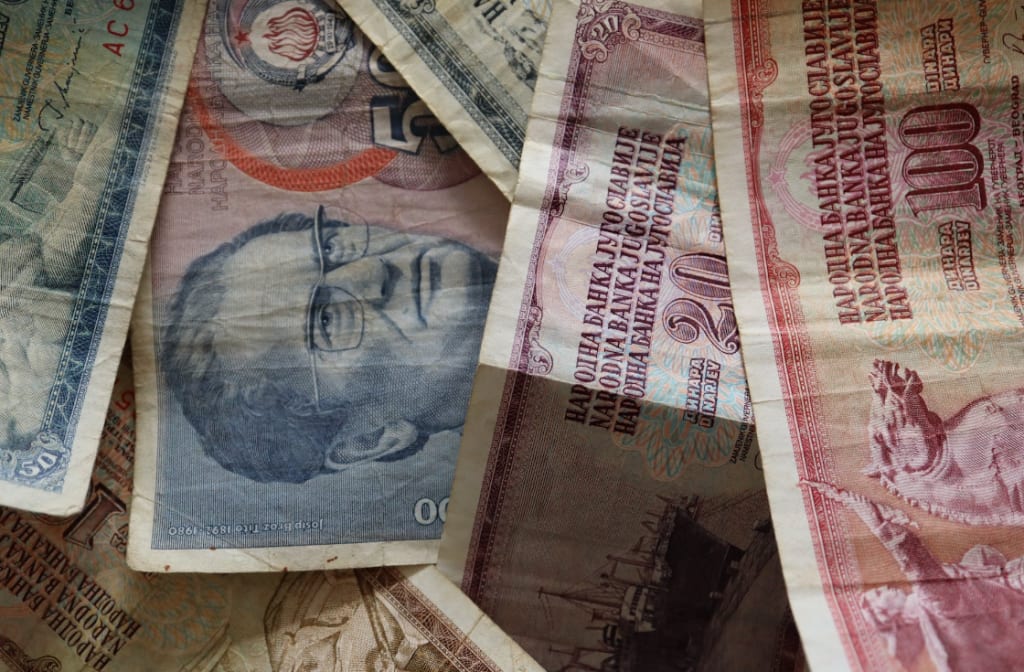The Chinese Manufacturing Slowing Down
Are Economists Sure of Recovery

The Chinese Manufacturing Purchasing Managers' Index (PMI) is a metric that assesses the state of the country's manufacturing industry in terms of its contribution to the country's overall economy. The PMI is a result of surveys that purchasing managers working for manufacturing companies completed. These managers are asked to express their perspective on the most recent business circumstances, which may include aspects such as production levels, new orders, and employment levels. The Purchasing Managers' Index (PMI) for China's manufacturing sector fell in April 2021, which is indicative of a slowdown in economic activity.
The Purchasing Managers' Index (PMI) in China fell to 51.1 in April 2021, which was much lower than the value of 51.8 that was anticipated and below the reading of 51.9 from March 2021. Over the past year and a half, the PMI has remained consistently higher than the threshold of 50.0, which denotes expansion relative to contraction, which is indicative of the manufacturing sector's continued expansion. Despite this, there was a decrease in PMI in April 2021, which has caused some people to worry about a possible economic slowdown in China.
The recent instability in the global economy that has been caused by the COVID-19 epidemic is one of the factors that experts believe may have contributed to the PMI's recent drop. The Chinese economy was one of the fastest to recover after the epidemic; however, the recent resurgences in a number of other nations have raised worries for the Chinese industrial sector. In addition, the Chinese New Year, which occurred in the month of February this year, is known to have an impact on the economic activity that takes place in the nation.
The decrease in PMI provides evidence that China's manufacturing sector, which is responsible for almost 30 percent of the country's GDP, is starting to have difficulties. Although production as a whole has increased, the rate at which the business is growing has slowed down. A decrease in demand for manufactured goods may be inferred from the fact that the sub-index measuring new orders saw a drop of 0.5 points. The sub-index measuring raw material inventory had a drop of 2.7 points, which suggests that manufacturers are lowering their inventories as a result of uncertainty over the level of demand in the future.
The decline in the PMI is also a reflection of the increasing pressure that foreign forces are exerting on the Chinese economy. These reasons include rising commodity prices and tense global trade relations. The administration has been attempting to strike a balance between its economic recovery efforts and the need to take action to rein in growing levels of debt and maintain price stability. The most recent decline in the PMI, on the other hand, might make these efforts more difficult since it suggests that the economy may be slowing down.
The expansion of China's economy has been a significant force behind the expansion of the global economy in recent years, and any slowdown in the manufacturing sector of China might have a domino effect on the economies of other countries. It is possible that other nations, like the United States and Europe, that are dependent on Chinese exports may feel the effects of a slowdown in demand for Chinese-produced products. In addition, a slowdown in manufacturing in China might have an effect on supply chains throughout the world that are dependent on components and raw materials sourced from China.
In order to address the issues that the industrial sector is currently facing, the Chinese government has proposed a variety of economic stimulus measures. For instance, the government has decreased business taxes and fees, decreased the cost of borrowing money, and increased the amount of money that is lent to small and medium-sized firms. Additionally, the government has increased its investment in infrastructure projects such as 5G networks and renewable energy sources. The adoption of these policies is geared toward bolstering the industrial sector and guaranteeing that economic expansion will proceed as planned.
The recent dip in Chinese PMI implies that the manufacturing sector is having issues, which in turn suggests that the Chinese economy may be slowing down. The experts, however, point out that the decrease in PMI is not wholly unexpected, given the worldwide economic worries caused by the epidemic. The Chinese government has proposed a number of different initiatives in an effort to encourage economic development, but it remains to be seen how successful these efforts will be. Since the developments in China's manufacturing sector have the potential to have a domino effect on the expansion of economies around the world, these developments will continue to be closely monitored.
About the Creator
Dr. Sulaiman Algharbi
Retired after more than 28 years of experience with the Saudi Aramco Company. Has a Ph.D. degree in business administration. Book author. Articles writer. Owner of ten patents.
Instagram: https://www.instagram.com/sulaiman.algharbi/






Comments
There are no comments for this story
Be the first to respond and start the conversation.